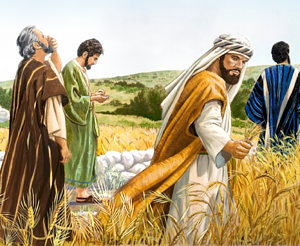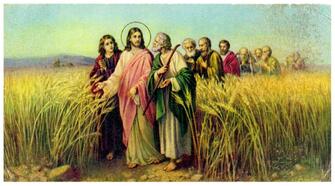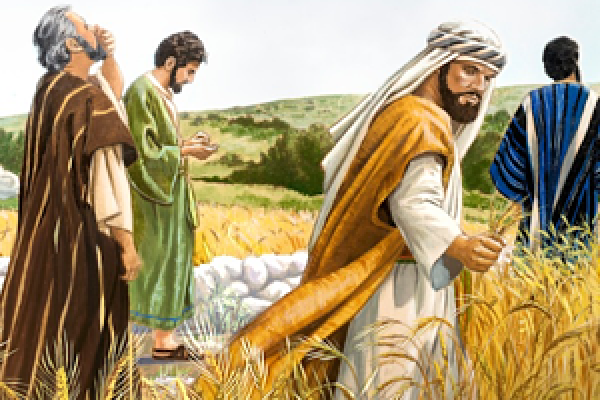THE SIXTEENTH SUNDAY IN ORDINARY TIME
GOSPEL: Matthew 13: 24-43
Dear friends,
We encounter today a parable that answers one of the most basic and perplexing questions people can have about God's kingdom; If the kingdom of heaven has indeed come, why is evil still present? In fact, why does it seem that evil is stronger than ever? Or why does God let bad things happen to good people?
That was a very practical question for the disciples. After all, if the kingdom of heaven had indeed come and had begun to spread upon the earth, why was it that Jesus was meeting with such great opposition from the Jewish religious leaders? Why were they plotting to kill Him? Why was there so much resistance to Him as "King"?
Like the disciples, the servants in the parable are very inquisitive, they put forward to their master an important question; "Where, then, did these weeds come from?" There is an urgency to their question. They want to know what happened and who is responsible. So do we. That's what we want to know when we discover weeds in our fields. We want an explanation and someone we can blame, hold accountable, and even punish. Far too often we see that in our day to day life situations and opinions. Jesus, however, seems less interested in this approach than we are. He doesn't give it much time or attention.
important question; "Where, then, did these weeds come from?" There is an urgency to their question. They want to know what happened and who is responsible. So do we. That's what we want to know when we discover weeds in our fields. We want an explanation and someone we can blame, hold accountable, and even punish. Far too often we see that in our day to day life situations and opinions. Jesus, however, seems less interested in this approach than we are. He doesn't give it much time or attention.
"An enemy has done this," he says. That's it. He doesn't explain it. He doesn't identify or name the enemy. He doesn't even give instructions to find, drive out, and punish this enemy.
Behind our desire for an explanation and the name of the culprit is a truth many of us neither like nor want to accept. It's one of the challenges of today's gospel. It's the challenge to become more than who we think we are. It's a challenge that arises every time we face the weeds of our life and world.
The reality, according to Jesus, is that our lives and our world are a field in which good and evil, life and death, joys and sorrows, that which we want and that which we don't want grow and live side by side. The wheat and the weeds stand together in our world and in each of our lives.
That, Jesus says, is what the kingdom of heaven is like. That's good news for us. It means that despite the weeds in and around us the kingdom is still here. The weeds do not overcome or make absent God's kingdom. It may not be the fullness of the kingdom but it is, nevertheless, the kingdom.
But what about those weeds? What do we do about them? Surely we should do something. According to Jesus. "Let them grow together until the harvest," he says. That makes no sense. How can we let them be? The weeds are bad and the wheat is good. We must do something!!!!!
According to Jesus. "Let them grow together until the harvest," he says. That makes no sense. How can we let them be? The weeds are bad and the wheat is good. We must do something!!!!!
Jesus shows more interest in growth than extermination. He is willing to wait and to be patient. If we are his followers we too will wait and be patient amongst the weeds of our life.
So do we do nothing as we wait? Just sit and wait? No, that's not what Jesus is saying. There is plenty to do and it will be a challenge. Jesus commands love. Love your enemy. Love your neighbor. Love yourself. Love God. Forgive the weeds? Love the weeds? So, yes, forgive them. Love them.
Maybe that's how the wheat begins to disentangle its roots from the weeds and show itself to be wheat and not weeds. Maybe love and forgiveness are what life in the mixed field of God's kingdom and this world is like. Like the master, don't just scatter your seeds anywhere and everywhere, plant them in people, places, and circumstances that are open, receptive, and ready. If our lives, our country, our world are going to change, to grow and flourish, to become something new, it will be because, and only because, "a sower went out to sow the seed with patience."
Since God is patient, we should be patient also. In our battle with evil we must not forget that our methods are to be different than the world. We are to be like Jesus. We are to love our enemies in the confidence that love will eventually soften the hardness of their hearts.
